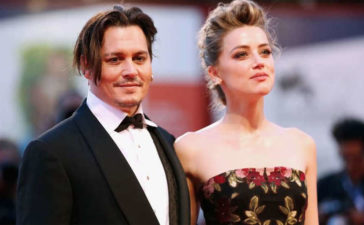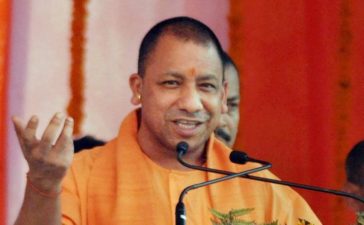By Subhash K. Jha
Film: “Victoria & Abdul”; Director: Stephen Frears; Cast: Judi Dench and Ali Fazal; Rating: ***1/2
There has been a lot of flak aimed at this enchanting film for it subversive look at colonial relationships.
For all those who refuse to take history’s lessons lightly, here is some unsolicited advice: Get a laugh.
And I do mean, laugh. For, in spite of one very moving tearful moment, sunshine and smiles are the dominant forces in Stephen Frears’ look at the very strange yet extremely noble and dignified bonding between Queen Victoria and her young clerical Indian friend Karim, who is sent to assuage her royal ego but is soon her closest confidante and only friend in a royal household teeming with opportunists and gold diggers.
This is not to say that the film trivializes history or, as suggested by some revisionist reviewers, that it turns the relation between the conqueror and the conquered into a soppy soap opera.
There is nothing soppy or sloppy about the friendship that grows between the Queen and her royal, if somewhat self-serving servant. Divided by cultures and continents, the two come together for a platonic friendship that defies all protocol and even basic logic. I mean, as one of the bitchy royal householders mutters under his breath, “What does she see in him?”
A lot, apparently. As played by the affable Ali Fazal, Abdul Karim is persuasively charming, cocky and irreverent yet attentive respectful and compassionate. Just what the Queen needed in her twilight years. And let us be honest, Abdul is not above being a manipulative opportunist. But then as the shrewd Queen retorts, who is not an opportunist in the royal household?
Director Stephen Frears, no stranger to cross-cultural romantic conflicts (who can forget the tumultuous passion between the Pakistani Omar and the British Johnny in Frears’s “My Beautiful Laundrette”?) here unravels with carpet-like imagery, the burgeoning fondness of the Queen for the tall handsome Oriental subject with a mixture of amusement and wonderment.
Looked at as a telescopic transcription of colonial hearsay, “Victoria & Abdul” renders itself handsomely and elegantly to the theme of ambivalent passion. Make no mistake. This is a world of unspoken but unmistakable passion. The Queen may whitewash her feelings with as much decorum as she likes. But there is most certainly a dark unexpressed and inexpressible frisson between she and her unlikely brown Muslim friend whom everyone at the Buckingham Palace refers to as ‘The Hindoo’.
Judi Dench drenches the Queen’s Victorian propriety and dignity in the colours of irreverence and iconoclasm. Queen Victoria as played by the actress, eats sumptuously (we see her at the meal table quite a number of times), drinks, burps and probably farts too. And she is not averse to snoring during ceremonial meals with aristocrats and other stuffed shirts (and stockings).
This is a fun queen, living her last years on her own terms. And Ali Fazal’s Abdul Karim provides the Queen with that impetus to be naughty and wild. Their relationship is impetuous and bridled by the Frowning Glory of the royal household. The disapproving brigade of British peers is played by a fine team of English actors, all of whom appear ridiculous only from the outside. I specially liked Eddie Izzard’s Bertie, the Queen’s neglected and petulant son, who cannot stand the sight of her embarrassing new Indian friend.
“A brown Mr Brown,” as someone describes Karim with a colourfully colloquial cluck of the tongue, referring to Victoria’s earlier scandalous liaison with a certain Mr Brown that we’ve seen in another (superior) film. The Queen’s association with Karim in this film is far less scandalous because there is no sex between them. Though I am sure she would have liked it to be.
Watching Judi and Ali sink their collaborative teeth into “Victoria & Abdul” provides us with a delightful, if somewhat iconoclastic insight into what the colonial relations would have been like if they had not been encumbered by protocol. There are moments of great tenderness and understanding between the two actors, almost echoing the tender but troubled relations between Adela Quested and Dr Aziz in E.M. Foster’s “A Passage To India”.
Imagine what life for Karim Abdul would have been like had the Queen turned around and accused him of unbecoming conduct. This is as hypothetical as wondering what life in India would have been like if the British had stayed away. Or what the British royalty would have been if the Queen was really as fey, feisty and irreverent as Judi Dench makes her out to be in this delightfully subversive view of royalty.
“Victoria & Abdul” has a beautiful heart and body. It feels and looks fetching. It is a work born out of sincere feelings and therefore, worthy of the respect that it so flippantly solicits.
–IANS
skj/rb/vm







